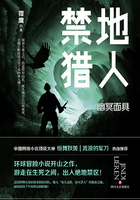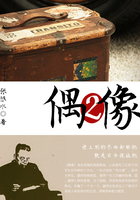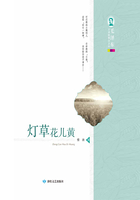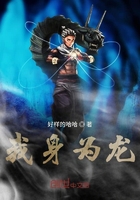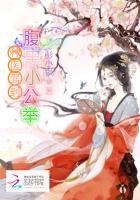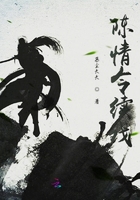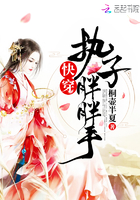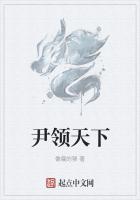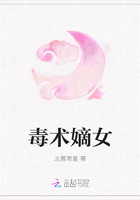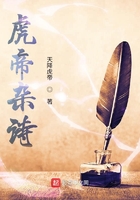IT was some time now, since I had left the Doctor. Living in his neighbourhood, I saw him frequently; and we all went to his house on two or three occasions to dinner or tea. The Old Soldier was in permanent quarters under the Doctor's roof. She was exactly the same as ever, and the same immortal butterflies hovered over her cap.
Like some other mothers, whom I have known in the course of my life, Mrs. Markleham was far more fond of pleasure than her daughter was. She required a great deal of amusement, and, like a deep old soldier, pretended, in consulting her own inclinations, to be devoting herself to her child. The Doctor's desire that Annie should be entertained, was therefore particularly acceptable to this excellent parent; who expressed unqualified approval of his discretion.
I have no doubt, indeed, that she probed the Doctor's wound without knowing it. Meaning nothing but a certain matured frivolity and selfishness, not always inseparable from full-blown years, I think she confirmed him in his fear that he was a constraint upon his young wife, and that there was no congeniality of feeling between them, by so strongly commending his design of lightening the load of her life.
‘My dear soul,’she said to him one day when I was present,‘you know there is no doubt it would be a little pokey for Annie to be always shut up here.’
The Doctor nodded his benevolent head.‘When she comes to her mother's age,’said Mrs. Markleham, with a flourish of her fan,‘then it'll be another thing. You might put ME into a Jail, with genteel society and a rubber, and I should never care to come out. But I am not Annie, you know; and Annie is not her mother.’
‘Surely, surely,’said the Doctor.
‘You are the best of creatures—no, I beg your pardon!’for the Doctor made a gesture of deprecation,‘I must say before your face, as I always say behind your back, you are the best of creatures; but of course you don't—now do you?—enter into the same pursuits and fancies as Annie?’
‘No,’said the Doctor, in a sorrowful tone.
‘No, of course not,’retorted the Old Soldier.‘Take your Dictionary, for example. What a useful work a Dictionary is! What a necessary work! The meanings of words! Without Doctor Johnson, or somebody of that sort, we might have been at this present moment calling an Italian-iron, a bedstead. But we can't expect a Dictionary—especially when it's ******—to interest Annie, can we?’
The Doctor shook his head.
‘And that's why I so much approve,’said Mrs. Markleham, tapping him on the shoulder with her shut-up fan,‘of your thoughtfulness. It shows that you don't expect, as many elderly people do expect, old heads on young shoulders. You have studied Annie's character, and you understand it. That's what I find so charming!’
Even the calm and patient face of Doctor Strong expressed some little sense of pain, I thought, under the infliction of these compliments.
‘Therefore, my dear Doctor,’said the Old Soldier, giving him several affectionate taps,‘you may command me, at all times and seasons. Now, do understand that I am entirely at your service. I am ready to go with Annie to operas, concerts, exhibitions, all kinds of places; and you shall never find that I am tired. Duty, my dear Doctor, before every consideration in the universe!’
She was as good as her word. She was one of those people who can bear a great deal of pleasure, and she never flinched in her perseverance in the cause. She seldom got hold of the newspaper (which she settled herself down in the softest chair in the house to read through an eye-glass, every day, for two hours), but she found out something that she was certain Annie would like to see. It was in vain for Annie to protest that she was weary of such things. Her mother's remonstrance always was,‘Now, my dear Annie, I am sure you know better; and I must tell you, my love, that you are not ****** a proper return for the kindness of Doctor Strong.’
This was usually said in the Doctor's presence, and appeared to me to constitute Annie's principal inducement for withdrawing her objections when she made any. But in general she resigned herself to her mother, and went where the Old Soldier would.
It rarely happened now that Mr. Maldon accompanied them. Sometimes my aunt and Dora were invited to do so, and accepted the invitation. Sometimes Dora only was asked. The time had been, when I should have been uneasy in her going; but reflection on what had passed that former night in the Doctor's study, had made a change in my mistrust. I believed that the Doctor was right, and I had no worse suspicions.
My aunt rubbed her nose sometimes when she happened to be alone with me, and said she couldn't make it out; she wished they were happier; she didn't think our military friend (so she always called the Old Soldier) mended the matter at all. My aunt further expressed her opinion,‘that if our military friend would cut off those butterflies, and give 'em to the chimney-sweepers for May-day, it would look like the beginning of something sensible on her part.’
But her abiding reliance was on Mr. ****. That man had evidently an idea in his head, she said; and if he could only once pen it up into a corner, which was his great difficulty, he would distinguish himself in some extraordinary manner.
Unconscious of this prediction, Mr. **** continued to occupy precisely the same ground in reference to the Doctor and to Mrs. Strong. He seemed neither to advance nor to recede. He appeared to have settled into his original foundation, like a building; and I must confess that my faith in his ever Moving, was not much greater than if he had been a building.
But one night, when I had been married some months, Mr. **** put his head into the parlour, where I was writing alone (Dora having gone out with my aunt to take tea with the two little birds), and said, with a significant cough:
‘You couldn't speak to me without inconveniencing yourself, Trotwood, I am afraid?’
‘Certainly, Mr. ****,’said I;‘come in!’
‘Trotwood,’said Mr. ****, laying his finger on the side of his nose, after he had shaken hands with me.‘Before I sit down, I wish to make an observation. You know your aunt?’
‘A little,’I replied.
‘She is the most wonderful woman in the world, sir!’
After the delivery of this communication, which he shot out of himself as if he were loaded with it, Mr. **** sat down with greater gravity than usual, and looked at me.
‘Now, boy,’said Mr. ****,‘I am going to put a question to you.’
‘As many as you please,’said I.
‘What do you consider me, sir?’asked Mr. ****, folding his arms.
‘A dear old friend,’said I.‘Thank you, Trotwood,’returned Mr. ****, laughing, and reaching across in high glee to shake hands with me.‘But I mean, boy,’resuming his gravity,‘what do you consider me in this respect?’touching his forehead.
I was puzzled how to answer, but he helped me with a word.
‘Weak?’said Mr. ****.
‘Well,’I replied, dubiously.‘Rather so.’
‘Exactly!’cried Mr. ****, who seemed quite enchanted by my reply.‘That is, Trotwood, when they took some of the trouble out of you-know-who's head, and put it you know where, there was a—’Mr. **** made his two hands revolve very fast about each other a great number of times, and then brought them into collision, and rolled them over and over one another, to express confusion.‘There was that sort of thing done to me somehow. Eh?’
I nodded at him, and he nodded back again.
‘In short, boy,’said Mr. ****, dropping his voice to a whisper,‘I am ******.’
I would have qualified that conclusion, but he stopped me.
‘Yes, I am! She pretends I am not. She won't hear of it; but I am. I know I am. If she hadn't stood my friend, sir, I should have been shut up, to lead a dismal life these many years. But I'll provide for her! I never spend the copying money. I put it in a box. I have made a will. I'll leave it all to her. She shall be rich—noble!’
Mr. **** took out his pocket-handkerchief, and wiped his eyes. He then folded it up with great care, pressed it smooth between his two hands, put it in his pocket, and seemed to put my aunt away with it.
‘Now you are a scholar, Trotwood,’said Mr. ****.‘You are a fine scholar. You know what a learned man, what a great man, the Doctor is. You know what honour he has always done me. Not proud in his wisdom. Humble, humble—condescending even to poor ****, who is ****** and knows nothing. I have sent his name up, on a scrap of paper, to the kite, along the string, when it has been in the sky, among the larks. The kite has been glad to receive it, sir, and the sky has been brighter with it.’
I delighted him by saying, most heartily, that the Doctor was deserving of our best respect and highest esteem.
‘And his beautiful wife is a star,’said Mr. ****.‘A shining star. I have seen her shine, sir. But,’bringing his chair nearer, and laying one hand upon my knee—‘clouds, sir—clouds.’
I answered the solicitude which his face expressed, by conveying the same expression into my own, and shaking my head.
‘What clouds?’said Mr. ****.
He looked so wistfully into my face, and was so anxious to understand, that I took great pains to answer him slowly and distinctly, as I might have entered on an explanation to a child.
‘There is some unfortunate division between them,’I replied.‘Some unhappy cause of separation. A secret. It may be inseparable from the discrepancy in their years. It may have grown up out of almost nothing.’
Mr. ****, who had told off every sentence with a thoughtful nod, paused when I had done, and sat considering, with his eyes upon my face, and his hand upon my knee.
‘Doctor not angry with her, Trotwood?’he said, after some time.
‘No. Devoted to her.’
‘Then, I have got it, boy!’said Mr. ****.
The sudden exultation with which he slapped me on the knee, and leaned back in his chair, with his eyebrows lifted up as high as he could possibly lift them, made me think him farther out of his wits than ever. He became as suddenly grave again, and leaning forward as before, said—first respectfully taking out his pocket-handkerchief, as if it really did represent my aunt:
‘Most wonderful woman in the world, Trotwood. Why has she done nothing to set things right?’
‘Too delicate and difficult a subject for such interference,’I replied.
‘Fine scholar,’said Mr. ****, touching me with his finger.‘Why has HE done nothing?’
‘For the same reason,’I returned.
‘Then, I have got it, boy!’said Mr. ****. And he stood up before me, more exultingly than before, nodding his head, and striking himself repeatedly upon the breast, until one might have supposed that he had nearly nodded and struck all the breath out of his body.
‘A poor fellow with a craze, sir,’said Mr. ****,‘a ******ton, a weak-minded person—present company, you know!’striking himself again,‘may do what wonderful people may not do. I'll bring them together, boy. I'll try. They'll not blame me. They'll not object to me. They'll not mind what I do, if it's wrong. I'm only Mr. ****. And who minds ****? ****'s nobody! Whoo!’He blew a slight, contemptuous breath, as if he blew himself away.
It was fortunate he had proceeded so far with his mystery, for we heard the coach stop at the little garden gate, which brought my aunt and Dora home.
‘Not a word, boy!’he pursued in a whisper;‘leave all the blame with ****—****** ****—mad ****. I have been thinking, sir, for some time, that I was getting it, and now I have got it. After what you have said to me, I am sure I have got it. All right!’Not another word did Mr. **** utter on the subject; but he made a very telegraph of himself for the next half-hour (to the great disturbance of my aunt's mind), to enjoin inviolable secrecy on me.
To my surprise, I heard no more about it for some two or three weeks, though I was sufficiently interested in the result of his endeavours; descrying a strange gleam of good sense—I say nothing of good feeling, for that he always exhibited—in the conclusion to which he had come. At last I began to believe, that, in the flighty and unsettled state of his mind, he had either forgotten his intention or abandoned it.
One fair evening, when Dora was not inclined to go out, my aunt and I strolled up to the Doctor's cottage. It was autumn, when there were no debates to vex the evening air; and I remember how the leaves smelt like our garden at Blunderstone as we trod them under foot, and how the old, unhappy feeling, seemed to go by, on the sighing wind.
It was twilight when we reached the cottage. Mrs. Strong was just coming out of the garden, where Mr. **** yet lingered, busy with his knife, helping the gardener to point some stakes. The Doctor was engaged with someone in his study; but the visitor would be gone directly, Mrs. Strong said, and begged us to remain and see him. We went into the drawing-room with her, and sat down by the darkening window. There was never any ceremony about the visits of such old friends and neighbours as we were.
We had not sat here many minutes, when Mrs. Markleham, who usually contrived to be in a fuss about something, came bustling in, with her newspaper in her hand, and said, out of breath,‘My goodness gracious, Annie, why didn't you tell me there was someone in the Study!’
‘My dear mama,’she quietly returned,‘how could I know that you desired the information?’
‘Desired the information!’said Mrs. Markleham, sinking on the sofa.‘I never had such a turn in all my life!’
‘Have you been to the Study, then, mama?’asked Annie.
‘BEEN to the Study, my dear!’she returned emphatically.‘Indeed I have! I came upon the amiable creature—if you'll imagine my feelings, Miss Trotwood and David—in the act of ****** his will.’
Her daughter looked round from the window quickly.
‘In the act, my dear Annie,’repeated Mrs. Markleham, spreading the newspaper on her lap like a table-cloth, and patting her hands upon it,‘of ****** his last Will and Testament. The foresight and affection of the dear! I must tell you how it was. I really must, in justice to the darling—for he is nothing less!—tell you how it was. Perhaps you know, Miss Trotwood, that there is never a candle lighted in this house, until one's eyes are literally falling out of one's head with being stretched to read the paper. And that there is not a chair in this house, in which a paper can be what I call, read, except one in the Study. This took me to the Study, where I saw a light. I opened the door. In company with the dear Doctor were two professional people, evidently connected with the law, and they were all three standing at the table: the darling Doctor pen in hand.“This simply expresses then,”said the Doctor—Annie, my love, attend to the very words—“this simply expresses then, gentlemen, the confidence I have in Mrs. Strong, and gives her all unconditionally?”One of the professional people replied,“And gives her all unconditionally.”Upon that, with the natural feelings of a mother, I said,“Good God, I beg your pardon!”fell over the door-step, and came away through the little back passage where the pantry is.’
Mrs. Strong opened the window, and went out into the verandah, where she stood leaning against a pillar.
‘But now isn't it, Miss Trotwood, isn't it, David, invigorating,’said Mrs. Markleham, mechanically following her with her eyes,‘to find a man at Doctor Strong's time of life, with the strength of mind to do this kind of thing? It only shows how right I was. I said to Annie, when Doctor Strong paid a very flattering visit to myself, and made her the subject of a declaration and an offer, I said,“My dear, there is no doubt whatever, in my opinion, with reference to a suitable provision for you, that Doctor Strong will do more than he binds himself to do.’”
Here the bell rang, and we heard the sound of the visitors’feet as they went out.
‘It's all over, no doubt,’said the Old Soldier, after listening;‘the dear creature has signed, sealed, and delivered, and his mind's at rest. Well it may be! What a mind! Annie, my love, I am going to the Study with my paper, for I am a poor creature without news. Miss Trotwood, David, pray come and see the Doctor.’
I was conscious of Mr. ****'s standing in the shadow of the room, shutting up his knife, when we accompanied her to the Study; and of my aunt's rubbing her nose violently, by the way, as a mild vent for her intolerance of our military friend; but who got first into the Study, or how Mrs. Markleham settled herself in a moment in her easy-chair, or how my aunt and I came to be left together near the door (unless her eyes were quicker than mine, and she held me back), I have forgotten, if I ever knew. But this I know,—that we saw the Doctor before he saw us, sitting at his table, among the folio volumes in which he delighted, resting his head calmly on his hand. That, in the same moment, we saw Mrs. Strong glide in, pale and trembling. That Mr. **** supported her on his arm. That he laid his other hand upon the Doctor's arm, causing him to look up with an abstracted air. That, as the Doctor moved his head, his wife dropped down on one knee at his feet, and, with her hands imploringly lifted, fixed upon his face the memorable look I had never forgotten. That at this sight Mrs. Markleham dropped the newspaper, and stared more like a figure-head intended for a ship to be called The Astonishment, than anything else I can think of.
The gentleness of the Doctor's manner and surprise, the dignity that mingled with the supplicating attitude of his wife, the amiable concern of Mr. ****, and the earnestness with which my aunt said to herself,‘That man mad!’(triumphantly expressive of the misery from which she had saved him)—I see and hear, rather than remember, as I write about it.
‘Doctor!’said Mr. ****.‘What is it that's amiss? Look here!’
‘Annie!’cried the Doctor.‘Not at my feet, my dear!’
‘Yes!’she said.‘I beg and pray that no one will leave the room! Oh, my husband and father, break this long silence. Let us both know what it is that has come between us!’
Mrs. Markleham, by this time recovering the power of speech, and seeming to swell with family pride and motherly indignation, here exclaimed,‘Annie, get up immediately, and don't disgrace everybody belonging to you by humbling yourself like that, unless you wish to see me go out of my mind on the spot!’
‘Mama!’returned Annie.‘Waste no words on me, for my appeal is to my husband, and even you are nothing here.’
‘Nothing!’exclaimed Mrs. Markleham.‘Me, nothing! The child has taken leave of her senses. Please to get me a glass of water!’
I was too attentive to the Doctor and his wife, to give any heed to this request; and it made no impression on anybody else; so Mrs. Markleham panted, stared, and fanned herself.
‘Annie!’said the Doctor, tenderly taking her in his hands.‘My dear! If any unavoidable change has come, in the sequence of time, upon our married life, you are not to blame. The fault is mine, and only mine. There is no change in my affection, admiration, and respect. I wish to make you happy. I truly love and honour you. Rise, Annie, pray!’
But she did not rise. After looking at him for a little while, she sank down closer to him, laid her arm across his knee, and dropping her head upon it, said:
‘If I have any friend here, who can speak one word for me, or for my husband in this matter; if I have any friend here, who can give a voice to any suspicion that my heart has sometimes whispered to me; if I have any friend here, who honours my husband, or has ever cared for me, and has anything within his knowledge, no matter what it is, that may help to mediate between us, I implore that friend to speak!’
There was a profound silence. After a few moments of painful hesitation, I broke the silence.
‘Mrs. Strong,’I said,‘there is something within my knowledge, which I have been earnestly entreated by Doctor Strong to conceal, and have concealed until tonight. But, I believe the time has come when it would be mistaken faith and delicacy to conceal it any longer, and when your appeal absolves me from his injunction.’
She turned her face towards me for a moment, and I knew that I was right. I could not have resisted its entreaty, if the assurance that it gave me had been less convincing.
‘Our future peace,’she said,‘may be in your hands. I trust it confidently to your not suppressing anything. I know beforehand that nothing you, or anyone, can tell me, will show my husband's noble heart in any other light than one. Howsoever it may seem to you to touch me, disregard that. I will speak for myself, before him, and before God afterwards.’
Thus earnestly besought, I made no reference to the Doctor for his permission, but, without any other compromise of the truth than a little softening of the coarseness of Uriah Heep, related plainly what had passed in that same room that night. The staring of Mrs. Markleham during the whole narration, and the shrill, sharp interjections with which she occasionally interrupted it, defy description.
When I had finished, Annie remained, for some few moments, silent, with her head bent down, as I have described. Then, she took the Doctor's hand (he was sitting in the same attitude as when we had entered the room), and pressed it to her breast, and kissed it. Mr. **** softly raised her; and she stood, when she began to speak, leaning on him, and looking down upon her husband—from whom she never turned her eyes.
‘All that has ever been in my mind, since I was married,’she said in a low, submissive, tender voice,‘I will lay bare before you. I could not live and have one reservation, knowing what I know now.’
‘Nay, Annie,’said the Doctor, mildly,‘I have never doubted you, my child. There is no need; indeed there is no need, my dear.’
‘There is great need,’she answered, in the same way,‘that I should open my whole heart before the soul of generosity and truth, whom, year by year, and day by day, I have loved and venerated more and more, as Heaven knows!’
‘Really,’interrupted Mrs. Markleham,‘if I have any discretion at all—’
(‘Which you haven't, you Marplot,’observed my aunt, in an indignant whisper.)—‘I must be permitted to observe that it cannot be requisite to enter into these details.’
‘No one but my husband can judge of that, mama,’said Annie without removing her eyes from his face,‘and he will hear me. If I say anything to give you pain, mama, forgive me. I have borne pain first, often and long, myself.’
‘Upon my word!’gasped Mrs. Markleham.
‘When I was very young,’said Annie,‘quite a little child, my first associations with knowledge of any kind were inseparable from a patient friend and teacher—the friend of my dead father—who was always dear to me. I can remember nothing that I know, without remembering him. He stored my mind with its first treasures, and stamped his character upon them all. They never could have been, I think, as good as they have been to me, if I had taken them from any other hands.’
‘Makes her mother nothing!’exclaimed Mrs. Markleham.
‘Not so mama,’said Annie;‘but I make him what he was. I must do that. As I grew up, he occupied the same place still. I was proud of his interest: deeply, fondly, gratefully attached to him. I looked up to him, I can hardly describe how—as a father, as a guide, as one whose praise was different from all other praise, as one in whom I could have trusted and confided, if I had doubted all the world. You know, mama, how young and inexperienced I was, when you presented him before me, of a sudden, as a lover.’
‘I have mentioned the fact, fifty times at least, to everybody here!’said Mrs. Markleham.
(‘Then hold your tongue, for the Lord's sake, and don't mention it any more!’muttered my aunt.)
‘It was so great a change: so great a loss, I felt it, at first,’said Annie, still preserving the same look and tone,‘that I was agitated and distressed. I was but a girl; and when so great a change came in the character in which I had so long looked up to him, I think I was sorry. But nothing could have made him what he used to be again; and I was proud that he should think me so worthy, and we were married.’
‘—At Saint Alphage, Canterbury,’observed Mrs. Markleham.
(‘Confound the woman!’said my aunt,‘she WON’T be quiet!’)
‘I never thought,’proceeded Annie, with a heightened colour,‘of any worldly gain that my husband would bring to me. My young heart had no room in its homage for any such poor reference. Mama, forgive me when I say that it was you who first presented to my mind the thought that anyone could wrong me, and wrong him, by such a cruel suspicion.’
‘Me!’cried Mrs. Markleham.
(‘Ah! You, to be sure!’observed my aunt,‘and you can't fan it away, my military friend!’)
‘It was the first unhappiness of my new life,’said Annie.‘It was the first occasion of every unhappy moment I have known. These moments have been more, of late, than I can count; but not—my generous husband!—not for the reason you suppose; for in my heart there is not a thought, a recollection, or a hope, that any power could separate from you!’
She raised her eyes, and clasped her hands, and looked as beautiful and true, I thought, as any Spirit. The Doctor looked on her, henceforth, as steadfastly as she on him.
‘Mama is blameless,’she went on,‘of having ever urged you for herself, and she is blameless in intention every way, I am sure,—but when I saw how many importunate claims were pressed upon you in my name; how you were traded on in my name; how generous you were, and how Mr. Wickfield, who had your welfare very much at heart, resented it; the first sense of my exposure to the mean suspicion that my tenderness was bought—and sold to you, of all men on earth—fell upon me like unmerited disgrace, in which I forced you to participate. I cannot tell you what it was—mama cannot imagine what it was—to have this dread and trouble always on my mind, yet know in my own soul that on my marriage-day I crowned the love and honour of my life!’
‘A specimen of the thanks one gets,’cried Mrs. Markleham, in tears,‘for taking care of one's family! I wish I was a Turk!’
(‘I wish you were, with all my heart—and in your native country!’said my aunt.)
‘It was at that time that mama was most solicitous about my Cousin Maldon. I had liked him’: she spoke softly, but without any hesitation:‘very much. We had been little lovers once. If circumstances had not happened otherwise, I might have come to persuade myself that I really loved him, and might have married him, and been most wretched. There can be no disparity in marriage like unsuitability of mind and purpose.’
I pondered on those words, even while I was studiously attending to what followed, as if they had some particular interest, or some strange application that I could not divine.‘There can be no disparity in marriage like unsuitability of mind and purpose’—‘no disparity in marriage like unsuitability of mind and purpose.’
‘There is nothing,’said Annie,‘that we have in common. I have long found that there is nothing. If I were thankful to my husband for no more, instead of for so much, I should be thankful to him for having saved me from the first mistaken impulse of my undisciplined heart.’
She stood quite still, before the Doctor, and spoke with an earnestness that thrilled me. Yet her voice was just as quiet as before.
‘When he was waiting to be the object of your munificence, so freely bestowed for my sake, and when I was unhappy in the mercenary shape I was made to wear, I thought it would have become him better to have worked his own way on. I thought that if I had been he, I would have tried to do it, at the cost of almost any hardship. But I thought no worse of him, until the night of his departure for India. That night I knew he had a false and thankless heart. I saw a double meaning, then, in Mr. Wickfield's scrutiny of me. I perceived, for the first time, the dark suspicion that shadowed my life.’
‘Suspicion, Annie!’said the Doctor.‘No, no, no!’
‘In your mind there was none, I know, my husband!’she returned.‘And when I came to you, that night, to lay down all my load of shame and grief, and knew that I had to tell that, underneath your roof, one of my own kindred, to whom you had been a benefactor, for the love of me, had spoken to me words that should have found no utterance, even if I had been the weak and mercenary wretch he thought me—my mind revolted from the taint the very tale conveyed. It died upon my lips, and from that hour till now has never passed them.’
Mrs. Markleham, with a short groan, leaned back in her easy-chair; and retired behind her fan, as if she were never coming out any more.
‘I have never, but in your presence, interchanged a word with him from that time; then, only when it has been necessary for the avoidance of this explanation. Years have passed since he knew, from me, what his situation here was. The kindnesses you have secretly done for his advancement, and then disclosed to me, for my surprise and pleasure, have been, you will believe, but aggravations of the unhappiness and burden of my secret.’
She sunk down gently at the Doctor's feet, though he did his utmost to prevent her; and said, looking up, tearfully, into his face:
‘Do not speak to me yet! Let me say a little more! Right or wrong, if this were to be done again, I think I should do just the same. You never can know what it was to be devoted to you, with those old associations; to find that anyone could be so hard as to suppose that the truth of my heart was bartered away, and to be surrounded by appearances confirming that belief. I was very young, and had no adviser. Between mama and me, in all relating to you, there was a wide division. If I shrunk into myself, hiding the disrespect I had undergone, it was because I honoured you so much, and so much wished that you should honour me!’
‘Annie, my pure heart!’said the Doctor,‘my dear girl!’
‘A little more! a very few words more! I used to think there were so many whom you might have married, who would not have brought such charge and trouble on you, and who would have made your home a worthier home. I used to be afraid that I had better have remained your pupil, and almost your child. I used to fear that I was so unsuited to your learning and wisdom. If all this made me shrink within myself (as indeed it did), when I had that to tell, it was still because I honoured you so much, and hoped that you might one day honour me.’
‘That day has shone this long time, Annie,’said the Doctor, and can have but one long night, my dear.’
‘Another word! I afterwards meant—steadfastly meant, and purposed to myself—to bear the whole weight of knowing the unworthiness of one to whom you had been so good. And now a last word, dearest and best of friends! The cause of the late change in you, which I have seen with so much pain and sorrow, and have sometimes referred to my old apprehension—at other times to lingering suppositions nearer to the truth—has been made clear tonight; and by an accident I have also come to know, tonight, the full measure of your noble trust in me, even under that mistake. I do not hope that any love and duty I may render in return, will ever make me worthy of your priceless confidence; but with all this knowledge fresh upon me, I can lift my eyes to this dear face, revered as a father's, loved as a husband's, sacred to me in my childhood as a friend's, and solemnly declare that in my lightest thought I have never wronged you; never wavered in the love and the fidelity I owe you!’
She had her arms around the Doctor's neck, and he leant his head down over her, mingling his grey hair with her dark brown tresses.
‘Oh, hold me to your heart, my husband! Never cast me out! Do not think or speak of disparity between us, for there is none, except in all my many imperfections. Every succeeding year I have known this better, as I have esteemed you more and more. Oh, take me to your heart, my husband, for my love was founded on a rock, and it endures!’
In the silence that ensued, my aunt walked gravely up to Mr. ****, without at all hurrying herself, and gave him a hug and a sounding kiss. And it was very fortunate, with a view to his credit, that she did so; for I am confident that I detected him at that moment in the act of ****** preparations to stand on one leg, as an appropriate expression of delight.
‘You are a very remarkable man, ****!’said my aunt, with an air of unqualified approbation;‘and never pretend to be anything else, for I know better!’
With that, my aunt pulled him by the sleeve, and nodded to me; and we three stole quietly out of the room, and came away.
‘That's a settler for our military friend, at any rate,’said my aunt, on the way home.‘I should sleep the better for that, if there was nothing else to be glad of!’
‘She was quite overcome, I am afraid,’said Mr. ****, with great commiseration.
‘What! Did you ever see a crocodile overcome?’inquired my aunt.
‘I don't think I ever saw a crocodile,’returned Mr. ****, mildly.
‘There never would have been anything the matter, if it hadn't been for that old Animal,’said my aunt, with strong emphasis.‘It's very much to be wished that some mothers would leave their daughters alone after marriage, and not be so violently affectionate. They seem to think the only return that can be made them for bringing an unfortunate young woman into the world—God bless my soul, as if she asked to be brought, or wanted to come!—is full liberty to worry her out of it again. What are you thinking of, Trot?’
I was thinking of all that had been said. My mind was still running on some of the expressions used.‘There can be no disparity in marriage like unsuitability of mind and purpose.’‘The first mistaken impulse of an undisciplined heart.’‘My love was founded on a rock.’But we were at home; and the trodden leaves were lying under-foot, and the autumn wind was blowing.


